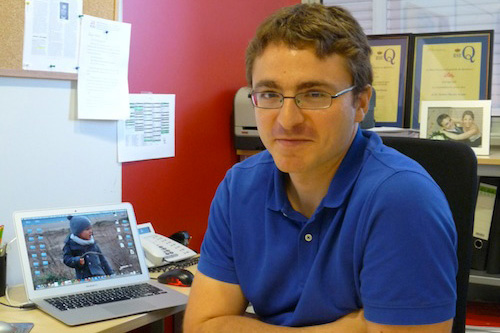ERC funding
During 2016, ICIQ received 2,950,000 euros from ERC Grants, which represented around 14 % of the overall funding.
In 2016, three ICIQ researchers were awarded with grants funded by the European Research Council.
Worth up to € 2.75 million per grant for up to 5 years, ERC Consolidator Grants are designed to support researchers at the stage at which they are consolidating their own independent research team or programme.
-

Paolo Melchiorre got an ERC Consolidator Grant to develop the project ‘Light-Driven Asymmetric Organocatalysis’ (CATA-LUX). Light-driven processes considerably enrich the modern synthetic repertoire, offering a potent way to build complex organic frameworks. In contrast, it is extremely challenging to develop asymmetric catalytic photoreactions that can create chiral molecules with a well-defined three-dimensional arrangement. By developing innovative methodologies to effectively address this issue, Prof. Melchiorre aims at providing novel reactivity frameworks for conceiving light-driven enantioselective organocatalytic processes.
Worth up to €150.000 per grant, ‘Proof of Concept’ funding helps ERC grant holders to bridge the gap between their existing frontier research and its commercial applications.
-

Rubén Martín received an ERC Proof of Concept Grant for the project “Catalytic reductive carboxylation of unactivated olefins with carbon dioxide” (OLE-DIOX), which offers the opportunity to convert ubiquitous alkenes into carboxylic acids, building blocks of utmost importance in our chemical industry, thus representing an important contribution for our circular economy by effectively recycling bulk materials into valuable products in one-step operation.
-

José Ramón Galán-Mascarós was awarded an ERC Proof of Concept Grant for the project “A novel platform for user-friendly spectroscopy at very low temperatures and under strong magnetic fields” (U-SPEC), aiming at assessing the technical and economic feasibility of a new device for spectroscopic measures developed by his research group. This new low-cost platform will allow performing spectroscopy and dichroism experiments in a large temperature range, and under high magnetic fields. The prototype will be IP protected, validated, developed as a commercial product and a business model strategy will be defined to bring this technology to market.